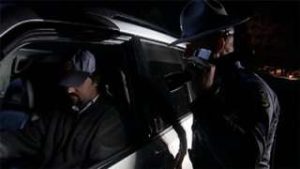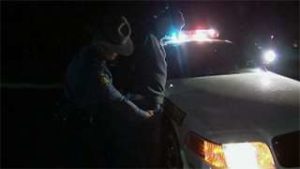How to Minimize the Risk of Being Hit by a Drunk Driver
There’s no two ways about it: drinking and driving kills. In 2005, over 16,000 people were killed in alcohol-related crashes. This represents nearly 40% of all fatal auto accidents.

Unfortunately, it’s not just the drunk drivers who suffer from their own carelessness. Their passengers as well as other innocent drivers are needlessly killed or injured.
While there are no guarantees in life, there are things you can do to lower the risk of becoming the victim of a reckless drunk driver.
Avoid late night driving
The rate of fatal alcohol-related crashes is three times higher at night than during the day. Obviously, you can’t stay completely off the streets at night, but the less time you spend on the roads late at night, the safer you’ll be from drunk drivers.
Stay off the road on ‘Drinking Holidays’
The month of December, the 4th of July, St. Patrick’s Day, Memorial Day, Labor Day, and Super Bowl Sunday are especially dangerous days on our nation’s roads. These times of celebration usually culminate with many impaired drivers hitting the streets. If you can avoid driving during these times, do it.
Ride the Right Side
Oftentimes, drunk drivers drift out of their lanes or completely cross into oncoming traffic. You can reduce the risk of being side-swiped or hit head-on by driving slightly in the right side of your lane as oncoming vehicles approach. Also, be mindful of cars driving in the same direction as you. Try to maintain a safe distance between yourself and other cars.

Don’t Assume Anything, Especially at Night
Anticipating other drivers’ actions, but not going so far as to make assumptions about other drivers’ intentions is the hallmark of defensive driving. For instance, just because a driver has activated their turn signal, it doesn’t mean they’re going to turn where you think they’re going to turn–or that they’ll even turn at all.
You must wait until the driver has committed to their action before making your own driving decisions. Drunk drivers are going to be even less predictable than sober drivers. And at night, the dangers are compounded drastically.
Avoid Country Roads and Two Lane Highways at Night
According to the U.S. General Accounting Office, in 2005, 61% of those killed in auto accidents were driving on rural, two-lane byways. Many of these roads offer poor visibility, challenging curves, and a variety of wildlife that could cause other vehicles to swerve in your direction. They’re also less likely to be maintained on a regular basis. Add a few drunk drivers to the mix and you have a recipe for disaster.
Keep Your Car Maintained, Especially Your Tires
You want to have maximum control over your vehicle at all times, as you never know when you’ll need to slam on the brakes or swerve to avoid an reckless driver. Because your tires are one of the most important factors regarding your vehicle’s ability to turn, stop, and accelerate, make sure they’re properly inflated and the tread is in good shape.
Report Suspicious Driving Behavior Immediately
As soon as you spot another car driving erratically, you should immediately call the police with the location of the incident and the make, model and color of the car. If you’re lucky enough to spot the license plate, make a note of it as well. Hopefully, the police will be able to remove the dangerous driver from the road before they injure themselves or others.
Don’t Tolerate Drunk Driving In Those Around You
Do whatever you can to keep people off the road when you know they’re intoxicated, as it’s not just a matter of saving that person’s life. What if your parents, your siblings, or your friends are out there? Do you really want them on the roads with one more drunk driver?
Support Tougher Drunk Driving Legislation
Over the past 20 years, the number of alcohol-related traffic fatalities has steadily declined. A combination of factors such as zero tolerance laws, sobriety checkpoints, educational campaigns, and tougher DUI penalties have contributed to this relative success. However, there is clearly more to be done. You can help by supporting legislation and politicians that are in favor of tougher penalties for DUI violations.

